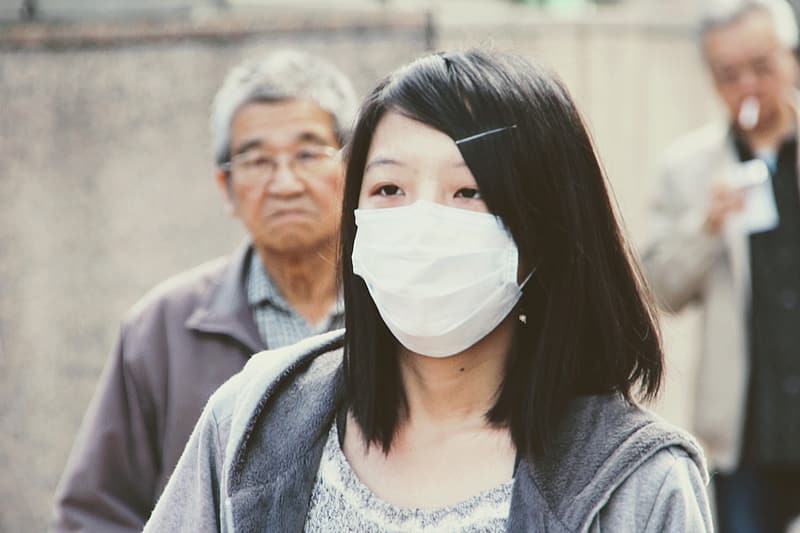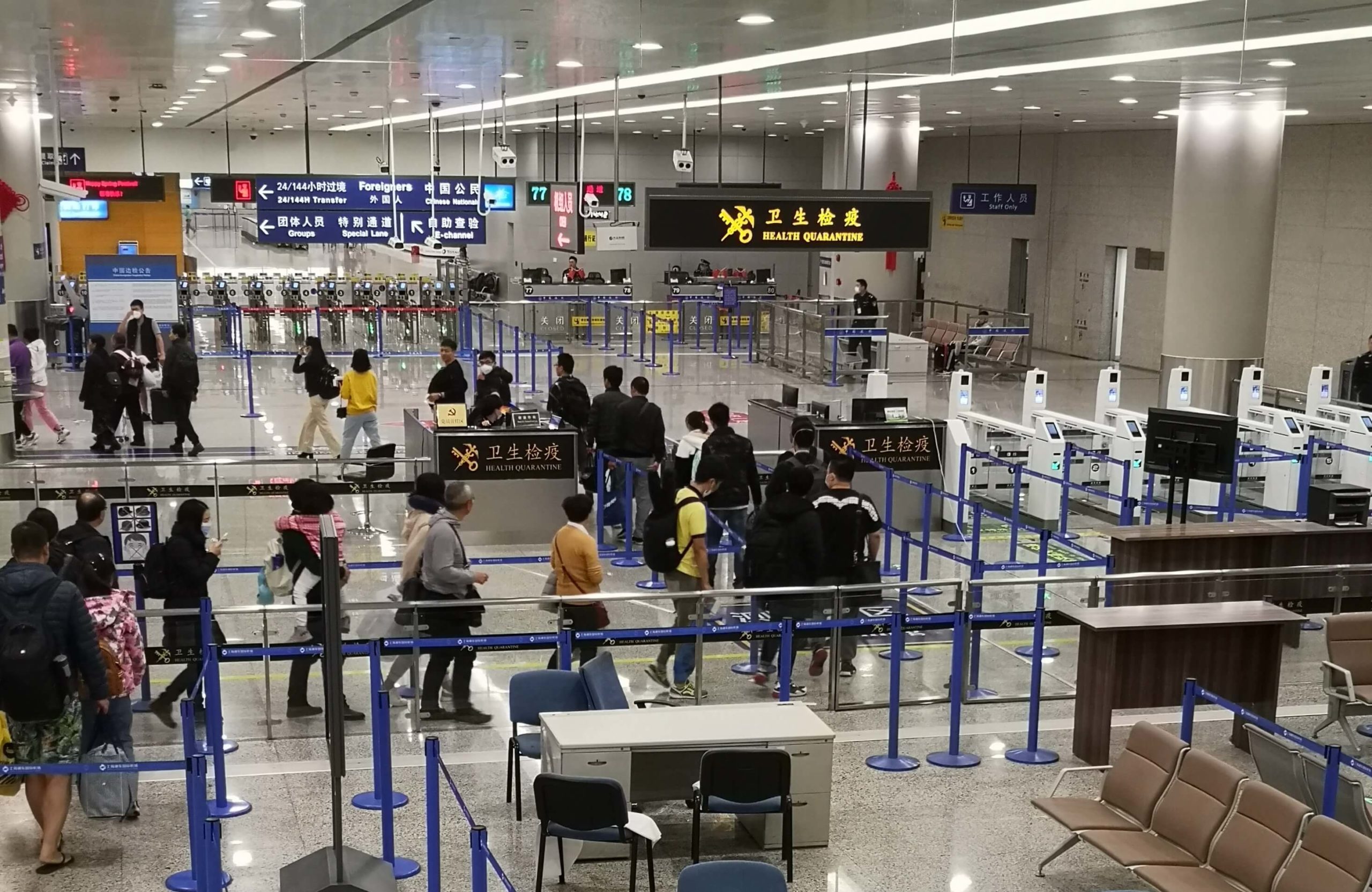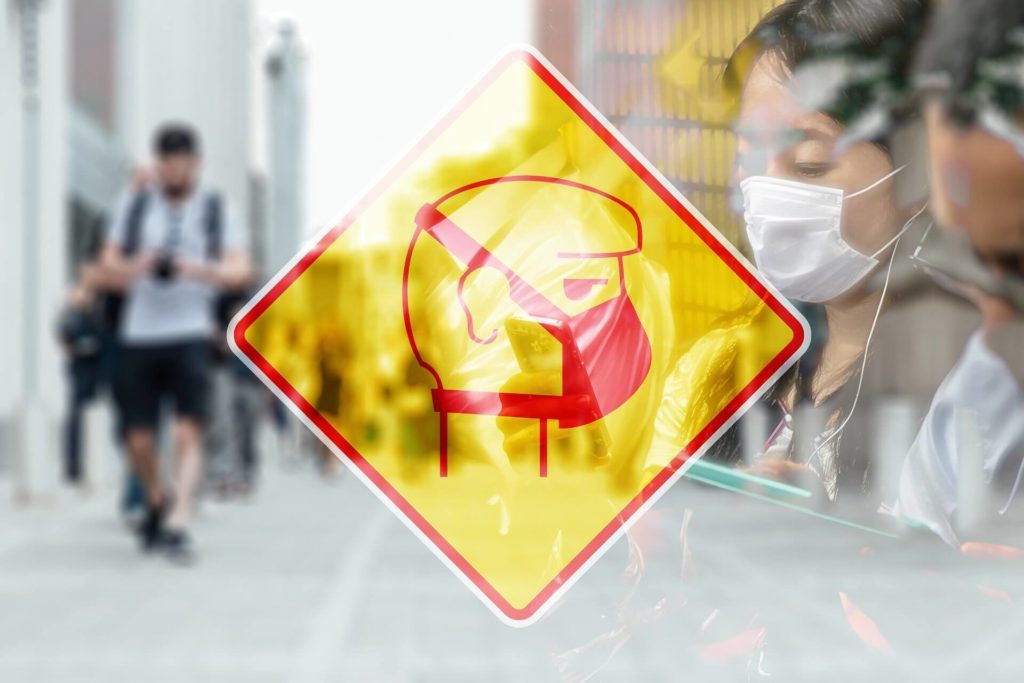February 21, 2020
If you have read a newspaper or watched the news in recent weeks, you can hardly have missed the story about traveling during the coronavirus outbreak in China. What is this virus? Which countries are affected? And will it cause problems for your upcoming trip? Here, we answer these questions and more to give you all the information you need about this new disease.
What is “coronavirus”?
Since the current outbreak began at the end of 2019, most reports in the media have simply called this virus “coronavirus”, but this is misleading. “Coronavirus” actually refers to a group of viruses, of which this virus is just one.

The SARS virus (Severe Acute Respiratory Syndrome, the disease that appeared in China in 2002 and killed 774 people) and the MERS virus (Middle East Respiratory Syndrome, the disease first identified in Saudi Arabia in 2012) are both coronaviruses – as is the common cold.
To clear up this confusion, the disease that is currently circulating has now been given the name Covid-19. The International Committee on Taxonomy of Viruses has designated the virus itself as SARS-CoV-2, a name that reflects how closely it is related to the original SARS virus.
Coronaviruses are common in animals and are occasionally passed to humans. Very rarely, they can also be passed from human to human, as with the current outbreak.
Covid-19 was first discovered in the central Chinese city of Wuhan. It is thought to have originated in a fish and animal market there where it probably made the jump from animals to humans.
Which countries and regions are most affected?
Wuhan, a city of 11 million people, is the capital of China’s Hubei province, and this province has seen the largest number of infections. Hubei alone has seen almost 60,000 cases since the beginning of the outbreak. Every other province in China has reported at least one case, although nothing like as many as in Hubei. The second-highest number of cases is in Guangdong province where there have been over 1,300 cases. The lowest number is in Tibet, which has so far seen only one case. At the time of writing, mainland China had recorded a total of over 70,000 cases.
Outside of mainland China, no country has reported more than 100 cases. Singapore and Japan have had the most, with 77 and 66 respectively at the time of writing. A cruise ship, Diamond Princess, has reported over 450 cases and is currently quarantined off the port of Yokohama in Japan.
So far, there have been 1,775 deaths due to the illness – of which just under 1,700 were in Hubei province. Outside of mainland China, Hong Kong, Taiwan, the Philippines and Japan have all seen one death each. On 14th February, France reported the death of an 80-year-old Chinese tourist in Paris, the first death outside of Asia.
You can find the most recent figures for the outbreak here.
What are the symptoms and what should you do if you experience them?
Early symptoms are much like the flu and include a runny nose, sore throat, cough, headache and fever. The symptoms can last for several days. In more serious cases, the virus can also cause bronchitis or pneumonia. The incubation period is thought to be between two and 14 days.
If you experience these symptoms and have reason to believe you may have contracted the virus, you should see a doctor. You should phone ahead to alert your clinic before you arrive.
The disease is more dangerous in the elderly and those with weakened immune systems, with 80% of deaths occurring in those over 60 and 75% of deaths occurring in those with existing health conditions.
Does it help to wear a mask and which type should I wear?
Although the sight of people wearing masks to protect themselves against the disease is now familiar, the consensus among health professionals is that most of them are not especially effective in preventing the disease among the general population.
In hospitals, the surgical masks that healthcare workers wear are single-use masks that are changed regularly – ideally after seeing each patient. However, for people going about their daily lives, this is not practical, and most people will probably change their single-use mask at most once a day.
Furthermore, the effectiveness of surgical masks relies on the other hygiene practices common in hospitals, like the constant washing of hands, the use of surgical gloves, wearing goggles etc. Without these additional measures, surgical masks alone can only provide a small amount of protection – and they are designed to protect the patient rather than the wearer anyway.
A more effective solution could be to wear an N95 respirator (roughly equivalent to FFP2 or FFP3 in Europe), so-called because they can block out 95% of small particles.
These masks can offer some protection against the virus. However, to be effective they need to fit correctly, they are not suitable for children or those with facial hair and they can’t prevent you from contracting the virus through your eyes.
They are also not recommended for those who are already sick since they can restrict your breathing.
In short, while wearing a mask probably won’t do you any harm and may help a bit, the evidence is that the usefulness of wearing a mask is limited at best.
What else can you do to keep yourself safe while traveling during the Coronavirus?
The best advice when traveling during the coronavirus is to avoid the areas that have been hardest hit by the outbreak, to avoid contact with sick people and to wash your hands frequently. You should wash your hands with soap and warm water for at least 20 seconds. If you have no access to soap and water, you can also use an alcohol-based hand sanitizer.
Also, if you are ill, to protect others you should cough or sneeze into your arm or a tissue – not your hand.
If you must travel to China, avoid sick people, avoid animals and don’t go to animal markets. Again, make sure you wash your hands frequently.
If you are not traveling during the Coronavirus to mainland China, there is no need to be paranoid about the disease. The chances of contracting it are very low, and as long as you take the usual precautions you should always take when traveling during the Coronavirus, you should be fine.
 us
us
How are airlines responding?
Some airlines have canceled services to mainland China while others have significantly reduced the number of flights they are operating.
In the US, Delta Air Lines has suspended all flights to mainland China until 30th April while American Airlines is not flying to China until 28th March. United has stopped flying to Beijing, Shanghai and Chengdu.
Airlines in other countries – for example, British Airways – have also suspended flights to China.
However, many airlines are waiving the fees usually charged for changing bookings, and some are also refunding tickets in the form of credit that can be spent on future flights.
If you were due to fly to China, the best advice is to contact your airline for specific and up-to-date details.
What about cruises?
Many cruises to mainland China have been canceled and others have changed their schedules. Some countries are also refusing to let ships that have been to mainland China dock in their ports. As with flights, if you are booked on a cruise that may be affected, you should contact your cruise company for specific details about cancelations, rebookings etc.
Are you covered by your insurance?
Unfortunately, regular travel insurance does not usually cover viral outbreaks, so your trip might not be covered unless you took out additional cover in the form of a “Cancel For Any Reason” policy. Although, like airlines and cruise companies, many hotels are trying to be flexible over cancelations and rebookings, you should contact your insurance provider to find out if your policy will allow you to recoup any of the other costs.
How long is it likely to last?
Since this virus is so new, very little is known about it, and experts don’t know how long the current outbreak is going to last. Although US president Donald Trump has claimed the outbreak will be over by April, the US Centers for Disease Control has contradicted this, saying it could be around for much longer. The best advice is to monitor news sources for the latest information.
Should I cancel my trip?
The US State Department has raised its travel warning for China to its highest level, Level Four, and advises against all travel to China. The UK government advises against all travel to Hubei province and advises against all non-essential travel to the rest of mainland China. These guidelines do not apply to Hong Kong or Macau.
However, if you are planning to travel anywhere else – including other destinations in Asia – there is currently no need to change your plans.
How can Travelers Wifi help?
Since the situation is changing constantly, if you are traveling during the Coronavirus, it is important to have access to the most up-to-date information. Rather than rely on Wi-Fi hotspots, a much better solution is to take a Travelers Wifi pocket Wi-Fi device with you to guarantee you can get online wherever and whenever you need to.
Stay connected while you travel
When you travel, it’s important to have access to the internet at all times. If you want a fast, reliable and safe connection wherever you go, click here to check out our pocket Wi-Fi solution that will allow you to stay connected throughout your trip.
